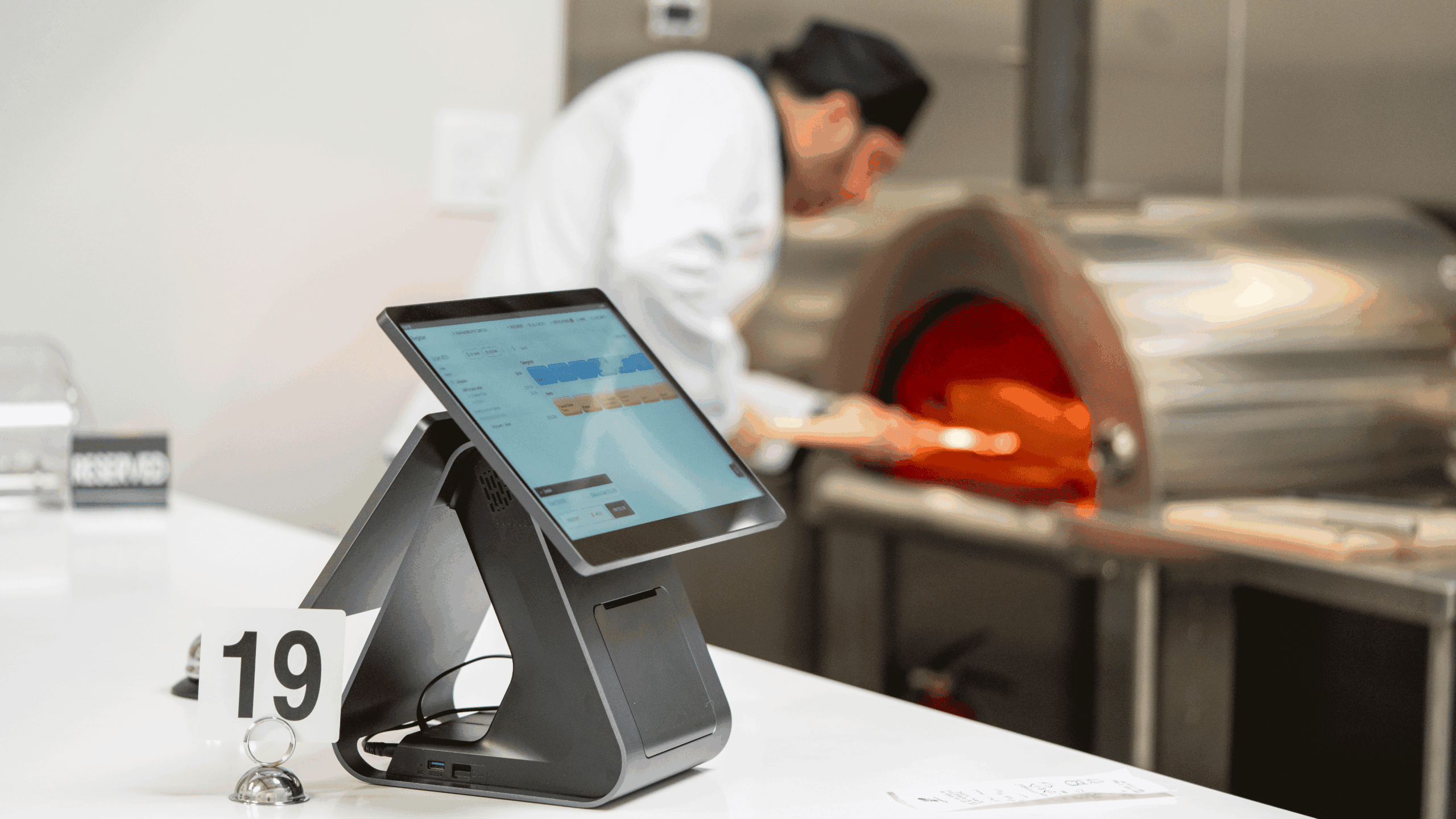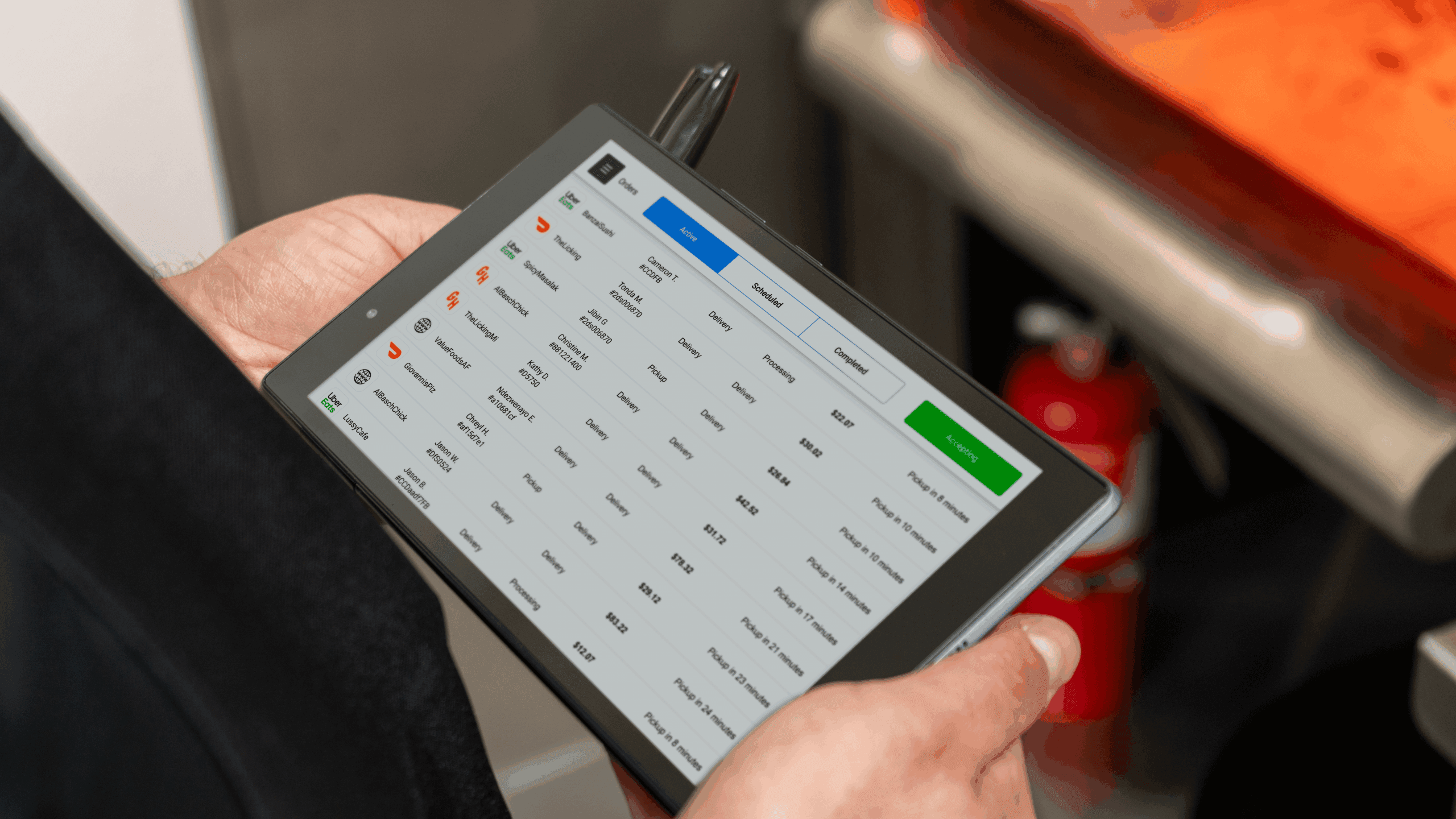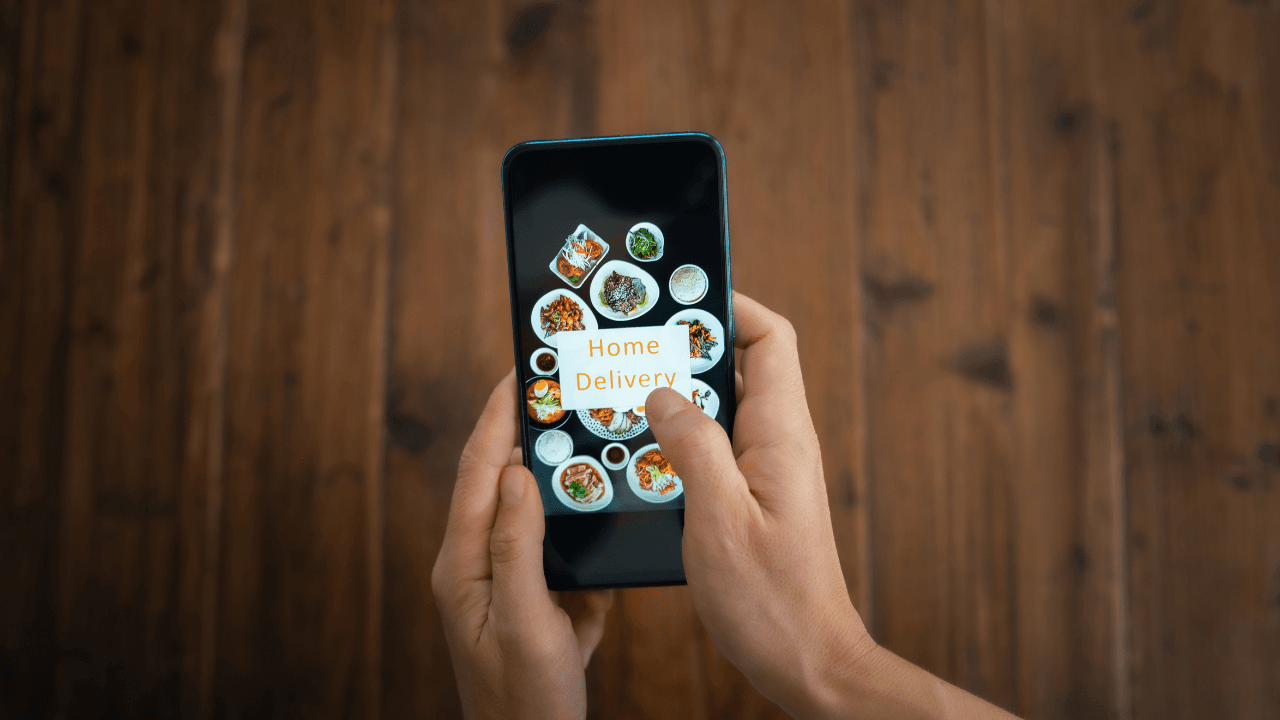- The Main Types of Chargeback of Restaurants
- What’s the Restaurant Chargeback Rate?
- What are the Top Causes of Restaurant Chargebacks?
- What are Some Possible Solutions for Handling Restaurant Chargebacks?
- What are Some Examples of Tools to Manage Restaurant Chargebacks?
- How AI Helps in Streamlining Chargeback Issues
- Win about 90% of Chargebacks with Third-Party Apps with Orders.co
Running a restaurant involves careful financial management, where even small losses can add up. One aspect that can hurt your profits is chargebacks.
These happen when customers dispute charges on their credit cards, which can significantly affect your restaurant’s finances.
Recently, preventing chargeback fraud and dealing with chargeback abuse has become more critical.
In 2023, 46 percent of online sellers made managing fraud a priority, up from 40 percent in 2021. This shows that more businesses are worried about the impact of chargebacks on their operations.
Understanding chargebacks, dispute management, and finding ways to reduce them is crucial for restaurant owners who want to protect their finances.
In this guide, we’ll explain chargebacks, how they affect your restaurant’s profits, and give you tips on handling them effectively.
The Main Types of Chargeback of Restaurants
In the restaurant industry, chargebacks can present unique challenges, ranging from disputes over service quality to unauthorized transactions, encompassing friendly fraud, criminal fraud, and merchant errors.
Here are the three types of chargebacks commonly encountered in restaurant operations:
Friendly Fraud
In the restaurant industry, friendly fraud chargebacks may occur when a restaurant customer disputes a legitimate transaction after dining at a restaurant. This could happen if the customer forgets about the transaction, disputes the charge due to dissatisfaction with the meal or service, or mistakenly believes they were overcharged.
Despite the friendly nature of the dispute, it can still lead to financial losses for the restaurant.
Criminal Fraud
Restaurants are also susceptible to criminal fraud chargebacks, which occur when fraudulent transactions use stolen credit card information. This could involve individuals using stolen cards to pay for restaurant meals without the cardholder’s knowledge or consent. And it might take a while to issue a complaint to their credit card company.
Criminal fraud poses a significant threat to restaurants, leading to financial losses and damage to their reputation if not properly addressed.
Merchant Error
Merchant error chargebacks in the restaurant industry may arise from mistakes made during the transaction process, such as charging the wrong amount, processing duplicate transactions, or failing to provide the goods or services as promised.
These errors can occur due to human error or technical issues with the restaurant’s payment systems. Resolving merchant errors promptly and effectively is essential for maintaining customer trust and minimizing the risk of chargebacks.
What’s the Restaurant Chargeback Rate?
The restaurant industry’s chargeback rate is notably low, averaging just 0.12%.
Despite this low rate, chargebacks can still occur within restaurants due to various reasons, such as billing discrepancies, delivery issues, or disputes regarding service quality.
While relatively rare, these occurrences can still impact a restaurant’s financial health and operational efficiency.
Understanding the potential causes of chargebacks and implementing proactive measures to minimize their occurrence remains vital for restaurant owners seeking to maintain their profitability and customer satisfaction levels.
What are the Top Causes of Restaurant Chargebacks?
The top causes of chargebacks in the restaurant industry typically revolve around billing discrepancies, delivery issues, and disputes regarding service quality. Here are some of the primary reasons why chargebacks may occur:
Billing Disputes
Customers may initiate chargebacks if they notice discrepancies in their bill, such as incorrect charges on a credit card statement, double charges, or unauthorized transactions.
Online Ordering and Delivery Problems
Chargebacks can arise if customers claim that they did not receive their food order or if there were issues with the delivery process, such as delayed delivery or orders being delivered to the wrong address.
Quality of Service Disputes
Customers may dispute charges if they are dissatisfied with the quality of the food or service provided by the restaurant. This could include complaints about food taste, presentation, or the overall dining experience.
Fraudulent Transactions
While less common in the restaurant industry compared to other sectors, instances of credit card fraud can still occur, leading to chargebacks if unauthorized transactions are detected.
Processing Errors
Mistakes made during the payment processing phase, such as incorrect transaction amounts or processing the same transaction multiple times, can result in chargebacks.
Cancellation Disputes
Chargebacks may occur if customers cancel their orders but are still charged for them or if they are charged for a reservation they could not attend due to circumstances beyond their control.
By understanding these common causes of chargebacks, restaurant owners can take proactive steps to address potential issues, improve customer satisfaction, and reduce the likelihood of chargebacks occurring in their establishments.
What are Some Possible Solutions for Handling Restaurant Chargebacks?
Handling restaurant chargebacks effectively requires a proactive approach to address the root causes and minimize their occurrence.
Here are some possible solutions:
Enhance Communication
Establish clear communication channels with customers to address any concerns or issues before they escalate to chargebacks. Provide multiple contact options such as phone, email, or chat to make it easy for customers to reach out with inquiries or complaints.
Improve Service Quality
Focus on delivering exceptional service to reduce the likelihood of customer dissatisfaction. Train staff to handle orders accurately, maintain cleanliness, and provide prompt and courteous service. Address customer complaints promptly and offer solutions to resolve any issues.
Streamline Billing Processes
Ensure accuracy in billing by implementing reliable point-of-sale (POS) systems and training staff to input orders correctly. Double-check orders before finalizing transactions to minimize billing discrepancies that could lead to chargebacks.
Optimize Delivery Logistics
If offering delivery services, optimize logistics to ensure timely and accurate deliveries. Provide real-time tracking updates to customers and collaborate with reliable delivery partners to minimize delivery issues that could result in chargebacks.
Implement Fraud Prevention Measures
Invest in fraud detection tools and security protocols to safeguard against fraudulent chargeback claims. Monitor transactions for suspicious activity and implement verification measures such as requiring CVV codes for online orders to mitigate fraud risk.
Maintain Detailed Records
Keep thorough records of transactions, including order details, receipts, and customer communications. Having comprehensive documentation can help dispute invalid chargebacks more effectively by providing evidence to support your case.
Respond Promptly to Chargebacks
Monitor chargeback notifications closely and promptly respond with relevant evidence supporting your position. Provide detailed documentation, including transaction records, delivery confirmations, and customer communications, to effectively dispute invalid chargeback claims.
Monitor Chargeback Trends
Regularly analyze chargeback data to identify trends and patterns that may indicate underlying issues. Use this insight to proactively address recurring issues and implement preventive measures to reduce chargeback rates over time.
What are Some Examples of Tools to Manage Restaurant Chargebacks?
Managing restaurant chargebacks requires specialized tools to streamline the chargeback process and minimize financial losses. Here are some examples of tools commonly used in the industry:
- Payment Processing Platforms: Many payment processors offer tools and features specifically designed to manage chargebacks. These platforms often provide real-time notifications of chargeback incidents, comprehensive reporting and analytics, and dispute resolution workflows to help restaurants efficiently address and mitigate chargebacks.
- Chargeback Prevention Services: Some companies provide chargeback prevention services tailored to the restaurant industry. These services typically include advanced fraud detection mechanisms, transaction monitoring, and chargeback prevention strategies to help restaurants reduce the occurrence of chargebacks and safeguard their revenue.
- Customer Feedback and Resolution Systems: Implementing systems for gathering and addressing customer feedback can help restaurants identify potential issues early on and address them before they escalate into chargeback disputes. These systems may include customer feedback surveys, online review management platforms, and customer support tools to promptly resolve customer concerns.
- Accounting and Point-of-Sale (POS) Systems: Accounting and POS systems with built-in chargeback management functionalities can streamline the process of tracking, reporting, and reconciling chargeback incidents. These systems may integrate with payment processors and financial management software to provide comprehensive chargeback management capabilities.
- AI-Powered Chargeback Management Platforms: In many instances, the bank can remove a significant percentage from the merchant’s account because of a chargeback. Such AI-powered platforms leverage artificial intelligence and machine learning algorithms to automate chargeback monitoring, provide actionable insights, and optimize dispute resolution processes, helping restaurants minimize financial losses and streamline operations.
How AI Helps in Streamlining Chargeback Issues
AI plays a pivotal role in streamlining restaurant chargeback issues, with platforms like Orders.co offering sophisticated solutions tailored to this specific challenge.
Here’s how AI helps in handling restaurant chargeback fees effectively:
Email Alerts
With AI integration, restaurant owners and managers can receive immediate email alerts, providing real-time notifications for every new chargeback request. This instantaneous notification enables prompt action, allowing businesses to address issues swiftly and minimize potential losses.
Orders.co’s Restaurant AI Chargeback Assistant goes beyond mere alerts by providing actionable insights. This AI-powered assistant analyzes chargeback cases, and offers recommended actions to resolve disputes effectively. Learning from past decisions makes the system more efficient over time, speeding up the resolution process and reducing manual intervention.
Customization Options
Recognizing the diverse needs of restaurant owners, Orders.co offers customization features. Users can opt for in-app custom actions, allowing them to tailor their approach to dispute resolution according to their preferences.
Whether preferring automated processing or manual intervention, this flexibility ensures that businesses can handle chargebacks in a manner that aligns with their operational strategies.
By leveraging AI technology through platforms like Orders.co, restaurants can streamline their chargeback management processes, enhancing efficiency, reducing financial losses, and ultimately improving customer satisfaction.
Win about 90% of Chargebacks with Third-Party Apps with Orders.co
In the restaurant industry, managing chargebacks is vital for financial stability and customer satisfaction.
Adopting a few best practices related to chargebacks and leveraging tools like payment processors and AI assistants, such as the one provided by Orders.co, empowers restaurants to streamline chargeback processes and minimize financial risks.
Orders.co’s AI assistant offers valuable features, including real-time alerts, dispute recommendations, and customizable options, providing restaurants with the tools needed to navigate chargebacks confidently.
By utilizing Orders.co’s AI assistant, restaurants can protect their bottom line while fostering customer trust and loyalty.
Schedule a FREE Demo and partner with Orders.co today to streamline your restaurant’s chargeback management process and unlock a path to enhanced profitability and customer satisfaction.



